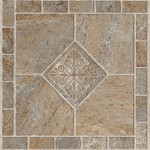Small Bathroom Herringbone Tile Floor
Herringbone tile is a classic flooring pattern defined by its zigzag design. It adds a touch of elegance and sophistication to any space, and it is especially well-suited for small bathrooms. The small size of the tiles helps to create a sense of intimacy and coziness, and the herringbone pattern adds visual interest without overwhelming the space
When choosing herringbone tile for a small bathroom, it is important to select a tile size that is proportionate to the size of the room. Smaller tiles will create a more delicate and intricate pattern, while larger tiles will create a more bold and dramatic look. It is also important to consider the color of the tile. Light-colored tiles will reflect more light and make the space feel larger, while dark-colored tiles will absorb more light and make the space feel smaller.
In addition to the size and color of the tile, it is also important to consider the grout color. White grout will create a clean and modern look, while dark grout will create a more rustic and traditional look. The width of the grout joint will also affect the overall look of the floor. A wider grout joint will create a more casual and relaxed look, while a narrower grout joint will create a more formal and polished look.
Once you have selected the tile and grout, it is time to install the floor. Herringbone tile can be installed using a variety of methods, but the most common method is to use a thin-set mortar. Thin-set mortar is a type of adhesive that is specifically designed for installing tile. It is important to follow the manufacturer's instructions for mixing and applying the thin-set mortar.
Once the thin-set mortar has been applied, the tile can be set in place. It is important to start in the center of the room and work your way out. This will help to ensure that the pattern is straight and even. As you set the tile, be sure to press down firmly to ensure that it isしっかりと in place.
Once the tile has been set, it is important to allow it to dry completely before grouting. Grout is a type of cement that is used to fill the joints between the tiles. It is important to follow the manufacturer's instructions for mixing and applying the grout. Once the grout has been applied, it is important to clean it off of the tile surface. You can use a damp sponge or cloth to clean the grout.
Once the grout has dried completely, your new herringbone tile floor will be complete. Herringbone tile is a beautiful and durable flooring option that can add a touch of elegance and sophistication to any small bathroom.

15 Herringbone Floor Tile Ideas For Extra Character

Powder Room Herringbone Tile Bathroom Vancouver By Westpro Flooring Houzz
10 Herringbone Tile Ideas Floor Decor Blog

White Herringbone Bathroom Floor Tiles Design Ideas

Herringbone Tile Pattern And 6 Tips For Designing A Bathroom The Decorologist

Bathroom Design Herringbone Tile Floor Vanities The Sweetest Digs
:max_bytes(150000):strip_icc()/farmhouse-bathroom-59fa01f8aad52b00193be1e9.jpg?strip=all)
15 Bathrooms With Amazing Tile Flooring

Help With Floor Tile For Herringbone Pattern In Master Bath

Small Bathroom Makeover Floor Tile

Herringbone Flooring Dare To Be Different Stone Tile








